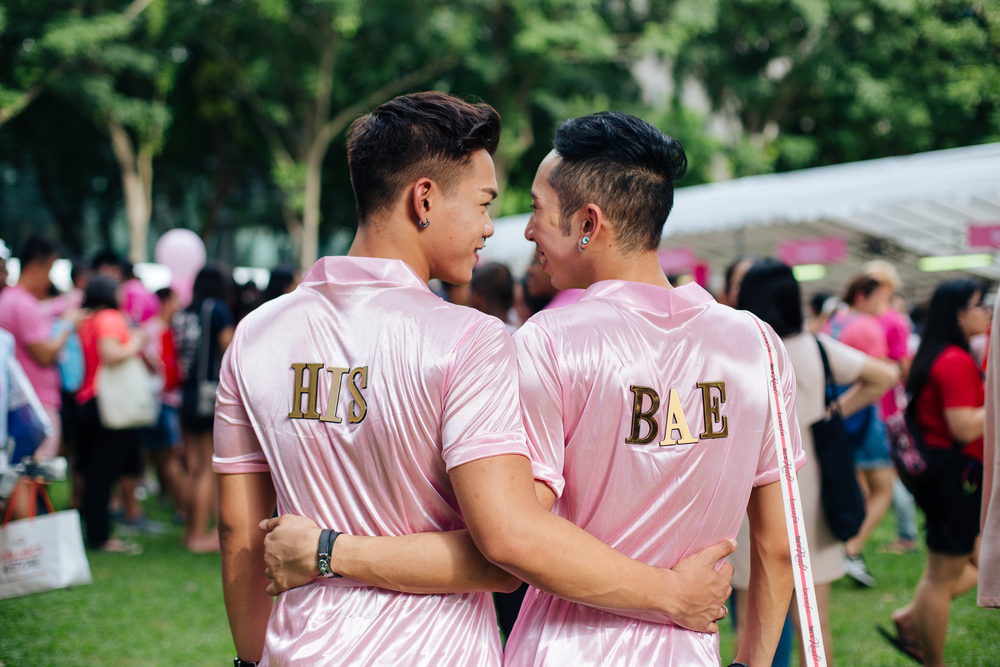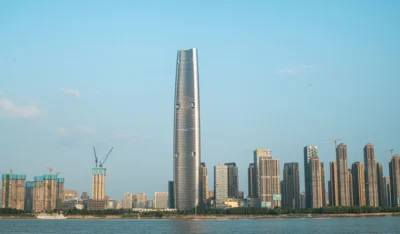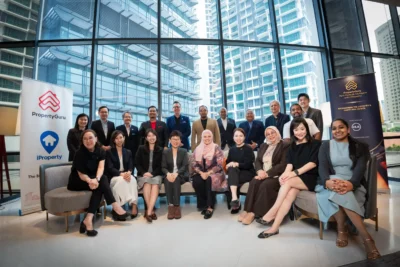Singapore takes a step forward in LGBTQ+ rights
Decriminalisation of gay sex was a landmark decision, but LGBTQ+ couples in Singapore still face major barriers in accessing affordable real estate

In August, Singapore’s Prime Minister Lee Hsien Loong made history by announcing that his country would finally do away with a colonial-era law criminalising same-sex relations between men.
“The PM of Singapore has taken a very significant step by announcing that Singapore will repeal section 377A of the penal code,” says Graeme Reid, director of the LGBT Rights Program at Human Rights Watch.
As news spread around the globe, many activist organisations commended Singapore. “This has been a long-term goal for activists in Singapore, and all legal routes to repeal had been exhausted by the time the prime minister made his announcement,” says Reid. “This development should be celebrated.”
Yet in the very same speech, the prime minister dealt a serious blow to the LGBTQ+ community by stating definitively that Singapore would “uphold and safeguard the institution of marriage” as currently defined in its Constitution, thereby ruling out marriage equality for same-sex couples for the foreseeable future. Since marriage is a cornerstone of many of the city-state’s policies on everything from adoption to education, that decision will have serious ramifications for many LGBTQ+ Singaporeans.
One of the most critical effects the announcement has in terms of wealth accumulation is that it all but cuts young, LGBTQ+ couples out of Singapore’s state-subsidised housing system. This matters enormously since it has the potential to put these couples at a financial disadvantage that will seriously hamper them in the long term.
“State-subsidised housing is often the first rung of the housing ladder for Singaporeans,” says Kah Poh Tay, an associate professor of real estate at the National University of Singapore. For the more than 80% of Singaporeans living in them, these state-subsidised homes are often their most important financial asset.
“There are restrictions on transacting such homes because of the public subsidies embedded,” Tay says. “But it’s almost guaranteed that these homes will enjoy significant capital appreciation if and when they can be sold in the open market five years down.” When Singaporeans do resell these flats, it is typically at a considerable profit. In the first half of 2022 alone, 166 resale apartments fetched a minimum of SGD1 million. That’s up from 2021 when the number of SGD1 million HDB resale flats tripled.
“As the largest financial commitment of most folks in Singapore, public housing provides a solid base for a typical household’s wealth accumulation,” Tay says. “Especially since almost all such flats are priced ‘affordably’ using the price-slash-income metric.”
Truth be told, minority groups have very limited options. The government has reiterated that many of Singapore’s social policies are centred around traditional family units with heterosexual couples
For the most part, Singapore’s state-subsidised housing program has been highly successful. Last year, the city-state’s homeless population declined to just 1,036. In contrast, in Los Angeles County, it rose to more than 69,000. The program is also a primary reason why nearly 90 percent of Singaporeans currently own their homes.
“The homeownership program introduced in the 1960s has been the cornerstone of the state-subsidised housing policy that helped build high ownership rates in Singapore,” says Tien Foo Sing, chair professor at the Department of Real Estate and director at the Institute of Real Estate and Urban Studies at the National University of Singapore.
As it stands, the Singaporean government reserves most of its state-subsidised housing system for young, married couples, who are eligible for grants of up to SGD80,000. Under the current system, LGBTQ+ couples only qualify as single buyers in Singapore’s subsidised housing system. That leaves them with lower subsidies and a far more limited selection of flats. It also means that, unlike married heterosexual couples, they cannot even enter the subsidised housing market until they reach the age of 35.
Given that both property prices and rents in the city-state are sky-high, this makes homeownership prohibitively expensive for most LGBTQ+ Singaporeans. According to a report by CBRE, property prices in Singapore soared by 10.6% in 2021. The Knight Frank Wealth Report 2022 found that SGD1.4 million is enough to purchase only 35.4 sqm of prime real estate, making Singapore the fifth most expensive place to buy property in the world.
“Truth be told, minority groups have very limited options,” Tay says. “Law & Home Affairs minister K. Shanmugam has reiterated that many of Singapore’s social policies are centred around traditional family units with heterosexual couples.”
At present, the median wait for one of these coveted subsidised apartments from the Housing & Development Board (HDB) is already four to five years. In other words, even LGBTQ+ couples that apply for the paltry offerings for single buyers at age 35 are unlikely to obtain an apartment before age 40. By that time, their heterosexual peers may already have purchased a home, flipped it for profit, and moved into more spacious accommodations suitable for a family.
“The current review of Section 377A of the penal code to decriminalise sex between men is unlikely to change the status quo on the family nucleus norms, which will remain the eligibility condition when buying subsidised public housing flats,” Sing says.
“Those people, including LGBTQ+ couples, who fall outside the family nucleus eligibility, may have to look out to private or resale HDB markets for their housing needs.”
As Reid and other LGBTQ+ activists have emphasised, repealing Section 377A is still a substantial, hard-won victory. “One of the obstacles to decriminalising same-sex relations in Singapore was that some argue that this will lead to same-sex marriage,” Reid says. “That is likely why the prime minister announced that Singapore will take steps to ensure that marriages will only be permitted between men and women, in the same speech as he announced the intention to decriminalise.”
At present, it remains unclear what the next stages will look like. Reid points out that it is still possible that the door will remain open for civil unions or other alternative legal arrangements that would give LGBTQ+ couples additional rights. However, the Singaporean government has not indicated this will be the case. And for as long as the current system remains in place, a sizable portion of Singapore’s population is being economically left behind.
The original version of this article appeared in Issue No. 175 of PropertyGuru Property Report Magazine. Write to our editors at [email protected].
Recommended
6 developments driving Asia’s green real estate shift
Developers are being incentivised to push a green agenda into daring new realms
The Philippines’ LIMA Estate drives sustainable industrial growth
LIMA Estate models a citywide vision that uplifts workers while appealing to climate-conscious employers
Malaysia property market rebounds with foreign interest and growth
The nation’s property market is stirring to life, fuelled by foreign buyers and major infrastructure drives
China’s renewable energy surge redefines housing norms and development
From exporting solar panels to building entire green-powered neighbourhoods, China’s renewable surge is redefining housing norms








